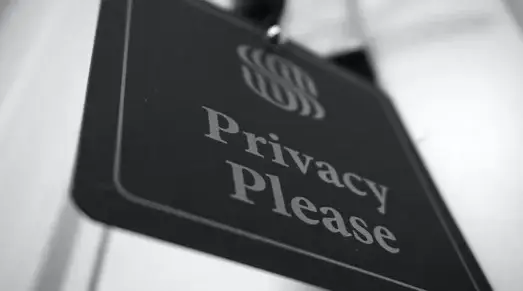
Privacy and the GDPR: Protection of personal data
The General Data Protection Regulation (GDPR) is a European law that protects personal data. For genealogical research, this means that data from living persons may not be accessed or shared without their consent. Many data such as dates of birth, marriage information and death certificates contain sensitive information that is covered by this legislation.
Archives and institutions therefore adhere to strict rules:
- Birth certificates: Often accessible only if the birth took place at least one hundred years ago.
- Marriage certificates: available after 75 years.
- Death certificates: Usually public after 50 years.
These guards are designed to protect the privacy of individuals (and their families). For example, imagine that your data is placed online without your permission. This entail risks such as identity fraud.
For researchers, this means that you must carefully manage the data you find. For example, if you publish or share a family tree on a platform, you must ask permission from living family members. If you suspect that your personal data has been published without your consent, you can take the following steps:
- Contact the person or organisation that shared the data.
- Aren't you two coming out together? Submit a complaint to the Dutch Data Protection Authority.
These rules shall also apply to the consultation of data in public archives or genealogical databases.
Privacy, Copyright and Genealogical Research
Genealogical research—tracing family history and assembling pedigrees—has grown enormously in popularity in recent years. With the growth of digital archives and platforms, data is more accessible than ever. This offers wonderful opportunities but also raises questions among early-stage researchers. Why can't I find my parents' marriage certificate? And how come I do not have access to my grandparents' birth certificate?
The answers to these questions often relate to two important topics: privacy legislation (GDPR) and copyright. Let us take a closer look at both themes to better understand how they affect genealogical research.
Copyright: Respect the source
In addition to privacy legislation, copyright also plays a vital role in genealogical research. Many sources, such as historical books, photographs, maps, and digital databases, are protected by copyright. This means that you may not copy, share or use these materials without the permission of the rightholders.
Some important guidelines:
- Quoting and referencing: Always state the source of the material you use. This is not only legally necessary but also ethically correct.
- Asking permission: Do you want to use a photo, document or other material that is copyrighted? Then ask permission from the rightholder.
- Please note with online platforms: Many genealogical websites have their own conditions for using data. Always check them before you download or share content.
For older works, the copyright may have expired, for example, if the creator has died more than 70 years. Nevertheless, it remains important to respect the source and to correctly mention it. Archives often give clear guidelines on how to use their material, so review them carefully.
Responsible and ethical research
Genealogical research offers a wonderful way to discover and preserve our family history for future generations. But this past journey also carries with it responsibilities. Respect for privacy and copyright is essential to work ethically and legally.
By managing personal data carefully, quoting correctly and asking for permission where necessary, we can enjoy the wealth of information that genealogical research offers, without infringing on the rights of others. In this way we can not only better understand our own history but also pass it on safely and respectfully to future generations.
by Laurie Wissink, researcher, and archive specialist collection Overijssel
Maak jouw eigen website met JouwWeb